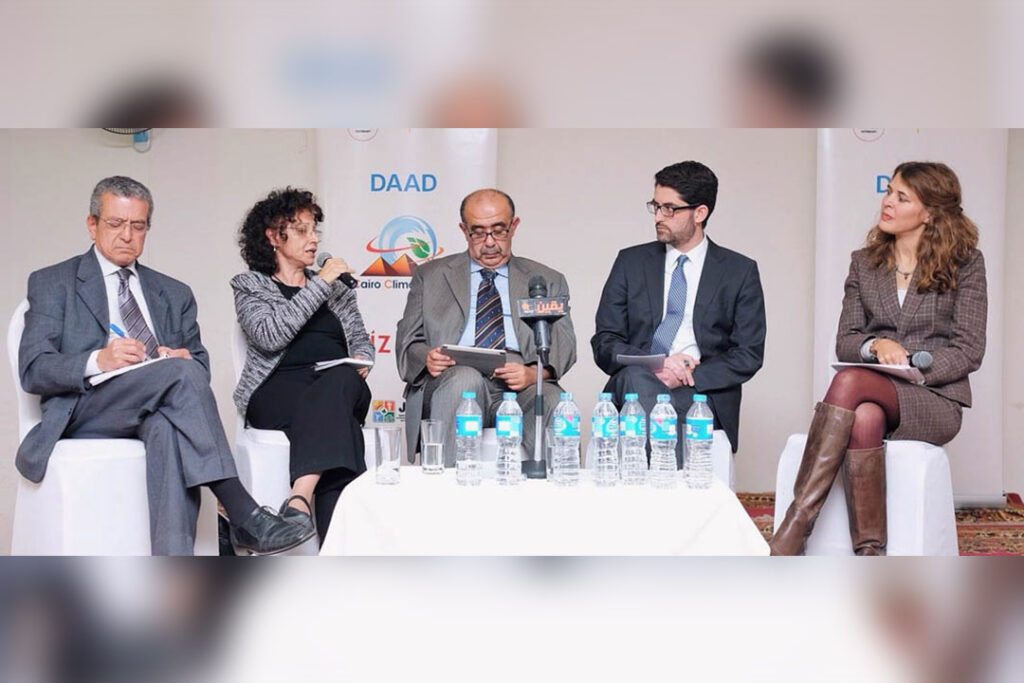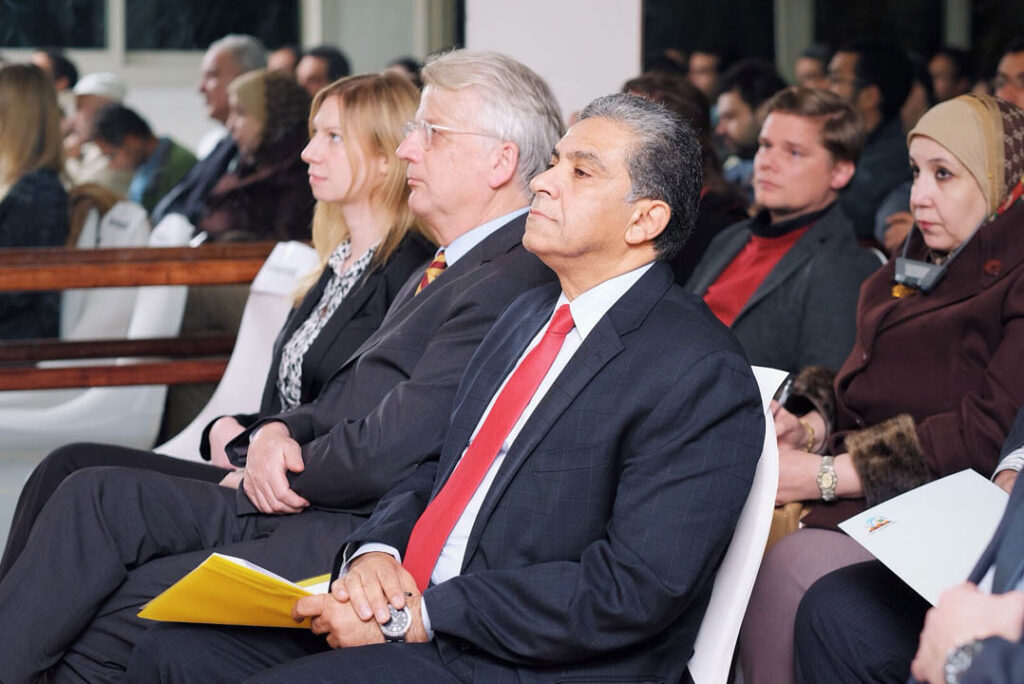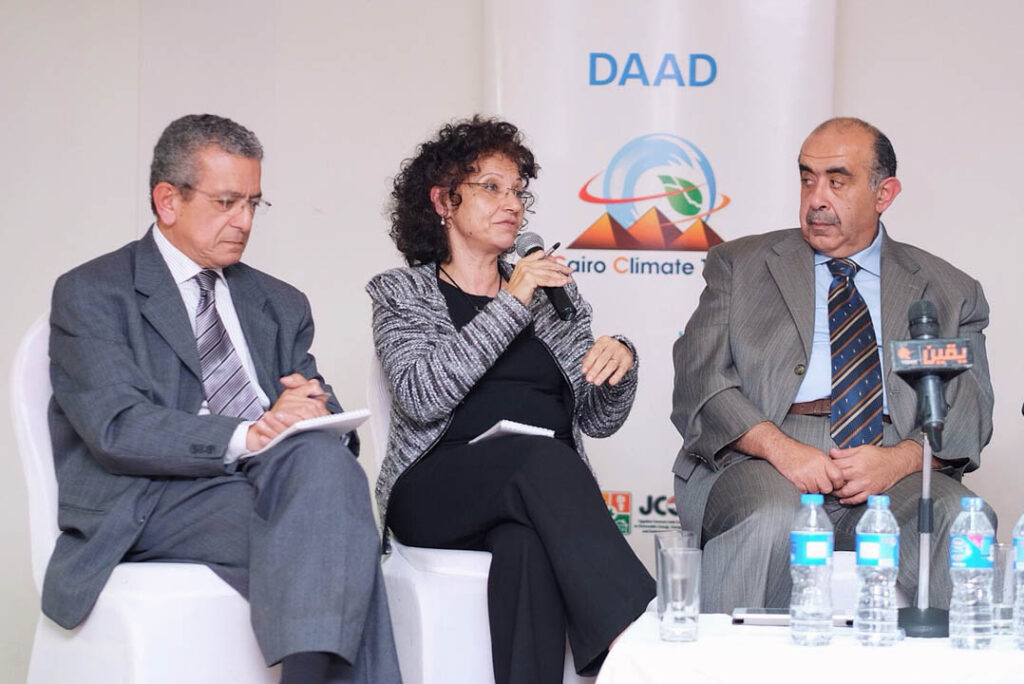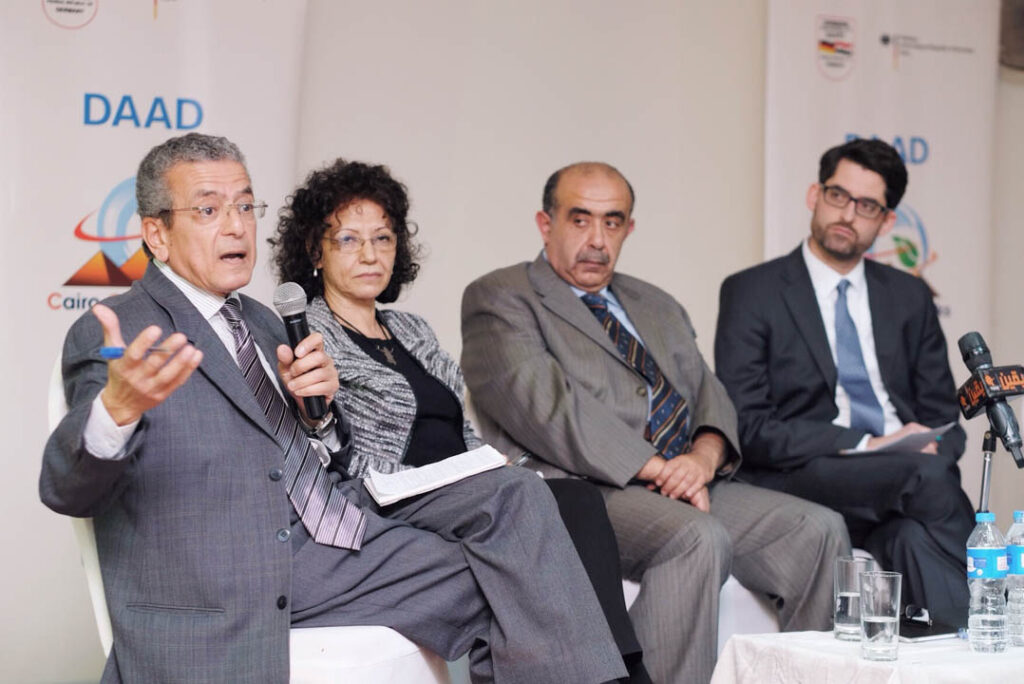The right to a clean and healthy life: Fundamentals of Environmental Justice
2015
Jan 28th
At Swiss Club: Villa Pax, 90 El Gihad Street off Sudan Street, Imbaba, Cairo
“Every individual has the right to live in a healthy, sound and balanced environment. Its protection is a national duty. The state is committed to taking the necessary measures to preserve it, avoid harming it, rationally use its natural resources to ensure that sustainable development is achieved, and guarantee the rights of future generations hereto,” reads Article 46 of the 2014 Egyptian Constitution.
Protecting the environment is inextricably linked to basic human rights; a fact that has also been recognized in international treatises on human rights including the Stockholm Declaration since the 1970s.
During the 28th Cairo Climate Talks, public and private sector experts from Germany and Egypt discussed how we can codify, enforce and safeguard such fundamental environmental rights and fulfill our duty to protect our surroundings for current and future generations.
H.E. Dr. Khaled Fahmy, Egyptian Minister of State for Environmental Affairs, and H.E. Hansjörg Haber, Ambassador of the Federal Republic of Germany in Cairo, opened the public panel discussion at the Swiss Club in Imbaba, Cairo on Wednesday evening. “We have environmental legislation since a long [time ago] but they were not implemented, they were not enforceable and we should think why,” said Minister Fahmy.
“It doesn’t boil down to regulation, it boils down to commitment, it boils down to participation, that we really are committed and working together government and citizens for implementing environmental law,” he added. Fahmy said the ministry and the Egyptian Environmental Affairs Agency are focused not only on their regulatory role, but are also responsible for designing policy, raising environmental awareness, conducting pilot projects and coordinating with other ministries to incorporate the environment into national planning. “You cannot be doing two things at the same time; you cannot be implementing and monitoring the compliance. These are two conflicting responsibilities,” the minister said.
Ambassador Haber praised Egypt for taking a “remarkable and a courageous step” by incorporating several environmental articles in the constitution, but noted that enforcement of environmental regulations is still a challenge. “Monitoring and enforcing such regulations is, however, inherently difficult and 100 percent compliance almost impossible to achieve,” the ambassador said. “One way out of this dilemma could be to complement laws and regulations with positive economic incentives, such as lower taxes for environmentally-friendly technologies or emission trading.”
Hesham Eissa, Head of Central Department for Climate Change, Egyptian Environmental Affairs Agency, said addressing pollution from industry and raising awareness about climate change and environmental violations are among the pressing issues facing his agency. “The citizen has a right to know what is the problem. If we are talking about climate change, we make a lot of awareness of how he can solve the problem with some projects funded by GIZ and the EU in upper Egypt.”
Speaking about the environmental consequences of economic decisions in Germany, Ralf Becker, Environmental Law Expert within Umweltbundesamt (German Federal Environment Agency) cited protests about nuclear waste disposal. “The use of nuclear energy is a very good example for a wrong decision that has been made in Germany many years ago without applying a cautionary approach,” he said. “Protests happened also because people have the impression that the procedure for finding this [nuclear waste disposal] site was not transparent and it was not fair. So the solution is to have a clear and fair procedure combined with a political decision and transparency. You need to give people the information, you need participation based on transparency and people need to have a chance to give voice to their fears.”
A German program giving financial incentives to people who replaced their old cars with new ones was also an example of how industry and economic factors took precedence over the environment. “When it comes to balancing economy and environmental protection, it is important to see even that sustainable development has three tiers; societal development, society and economy can be developed within the boundaries of environment and this has to be the basic thinking,” Becker said.
Balancing the need for industry and investment from powerful multinationals with environmental protection is a challenge, agreed the panelists.
The role of the Ministry of Environment should be strengthened and NGOs and citizens should also participate in reporting problems, said Ragia Elgerzawy, Environmental Researcher for the Egyptian Initiative for Personal Rights (EIPR). “I think there is a kind of moral responsibility for environmental activists in developing countries because these companies have very sophisticated techniques and even measuring pollution can help us complain to the home countries,” Elgerzawy said.
Academic institutions also have a role to play in raising awareness and providing research and environmental data such as pollution measurements so the government can set limits and punish violators, said Hassan Abou Bakr, Professor of Biological Control within the Cairo University Faculty of Agriculture. “We are now finalizing a study on the farmers’ perception of climate change in two villages of Damietta — one of the most vulnerable regions to the impacts of climate change. They didn’t realize they’re living on a danger area because no one taught them,” Abou Bakr said.
“I think the keyword here is awareness. When people know they move. Wherever there is an environmental movement even at the local level there is always an NGO or a group of activists or some persons who taught people about the problem.”
Meet our Panelists
Hesham Eissa
Head of Central Department for Climate Change, EEAA
Ralf Becker
Environmental law expert, German Federal Environmental Agency
Ragia Elgerzawy
Environmental Researcher, The Egyptian Initiative for Personal Rights (EIPR)
Dr. Hassan Abou Bakr
Professor of Biological Control, Department of Economic Entomology, Faculty of Agriculture, Cairo University.
Meet our Moderators
Mr. Ahmed Sedky
expert on sustainable and renewable energy systems and solutions
Venue / location
At Swiss Club: Villa Pax, 90 El Gihad Street off Sudan Street, Imbaba, Cairo








Are you interested? Don’t miss out by registering to our events. We hope to see you there.
